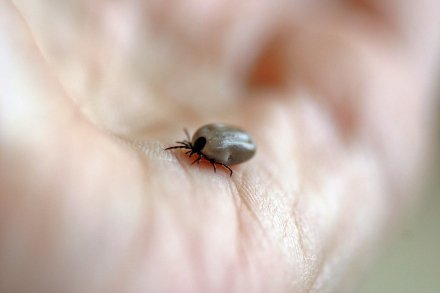
Spotlight on food allergy
As many as one out of four people in Sweden ― both children and adults ― report in various surveys that they have a hypersensitivity to some food or drink. Better diagnostics are now being introduced, as are new ideas regarding both prevention and treatment. Most of all, researchers are interested in pinpointing conditions that could be potentially life-threatening.

Your guide to the allergy jungle
Research points to increasing problems relating to hypersensitivity to food, especially food allergies. At the same time, more people than necessary have been categorised as having allergies. Researchers at KI explains.

Food hypersensitivity – in short
Hypersensitivity can be due to allergy or to intolerance. And it gets even more confusing, as it is possible for the same food to cause both allergies and intolerance.

Not all that itches is allergy
Allergens from plants are often closely related at protein level. Birch and peanut are for example fairly alike, which means that people who are allergic to birch pollen can suffer mild symptoms when they eat peanuts.

Tick bites can lead to meat allergy
The first case of meat allergy was described in Sweden in 2009, and it is now an established condition. According to researchers meat allergy can be linked to tick bites.

No danger of peanuts in the air
Many people suffering from an allergy to peanuts are afraid to having a reaction to peanuts through the air. But a new study provides reassuring news.
 Photo: Rebecka Uhlin
Photo: Rebecka UhlinHe eats peanuts every day
Viktor Nordgren is currently participating in a clinical trial to cure his peanut allergy. With the support of a new medication, he has been able to increase the number of peanuts he can manage to eat each day.
 Photo: Rebecka Uhlin
Photo: Rebecka UhlinMakes the throat itch, but not too bad
Julius Camner, 8 years old, is allergic to cheese-flavoured corn crackers. But every day he eats a little bit of a cracker anyway, because he loves the taste of it.
 Photo: Rebecka Uhlin
Photo: Rebecka UhlinDoes meat allergy even exist?
Malin Lundén Schmid first thought it was a joke when the doctor told her she was suffering from meat allergy. It took a long time to accept the diagnosis, but now she is used to avoiding eating meat.
 Photo: Getty Images
Photo: Getty ImagesEarly food introduction can reduce risk of food allergy in children
Infants who were given a taste of peanut, milk, wheat and egg from the age of three months had a lower risk of developing a food allergy at the age of three years than controls, reports a study by researchers from Karolinska Institutet in Sweden and the University of Oslo in Norway published in The Lancet.
 Photo: Istockphotos.
Photo: Istockphotos.A gluten-free diet is not good for everyone
For people who are gluten intolerant or who have coeliac disease, excluding gluten from the diet is essential. But, maintains Jonas F. Ludvigsson, anyone who suspects they may have coeliac disease should definitely not start eating gluten-free foods immediately, but should get tested first
 Photo: Katarina Sternudd
Photo: Katarina Sternudd